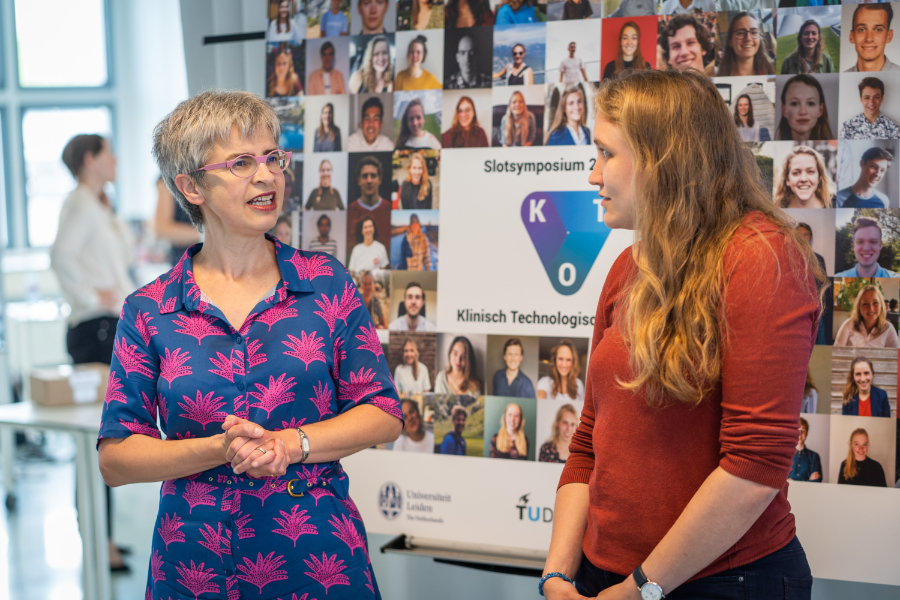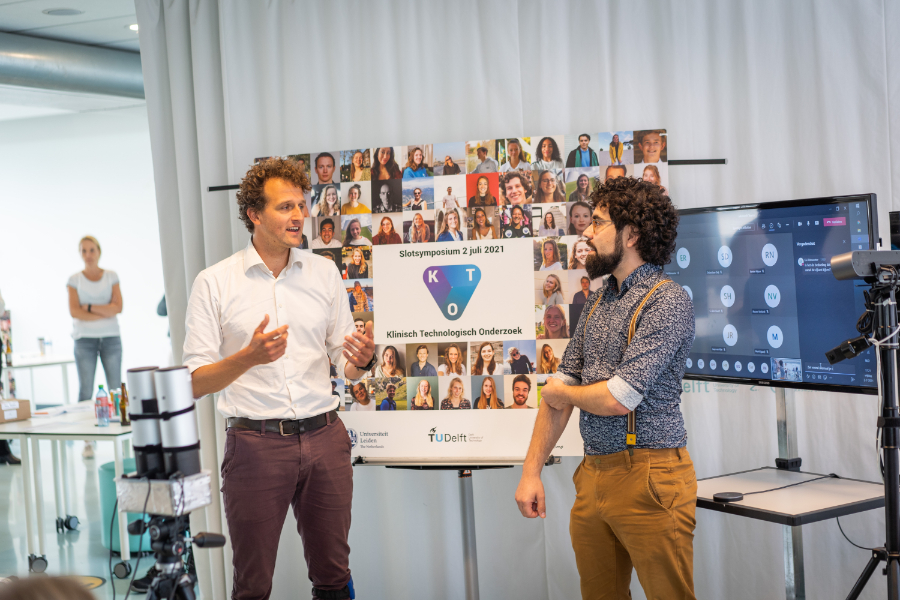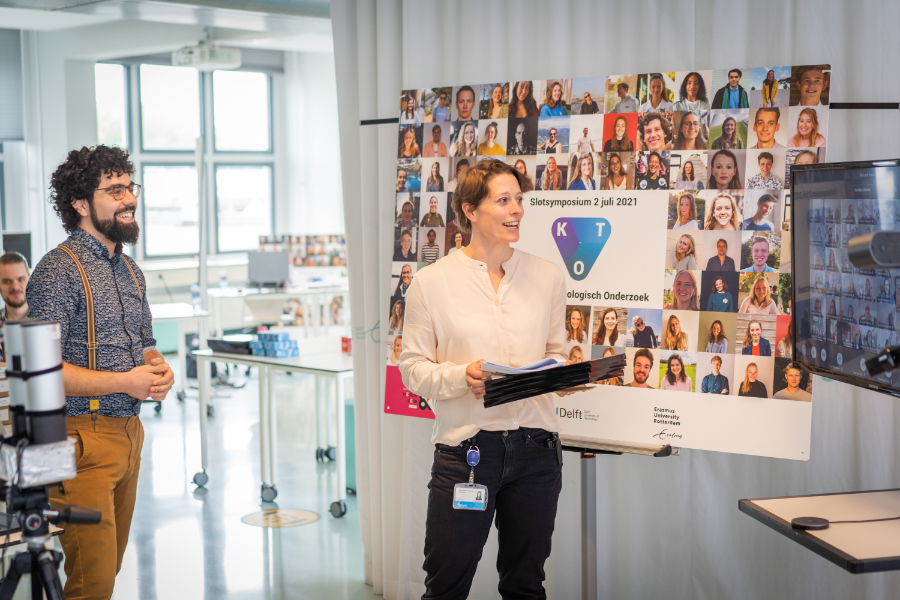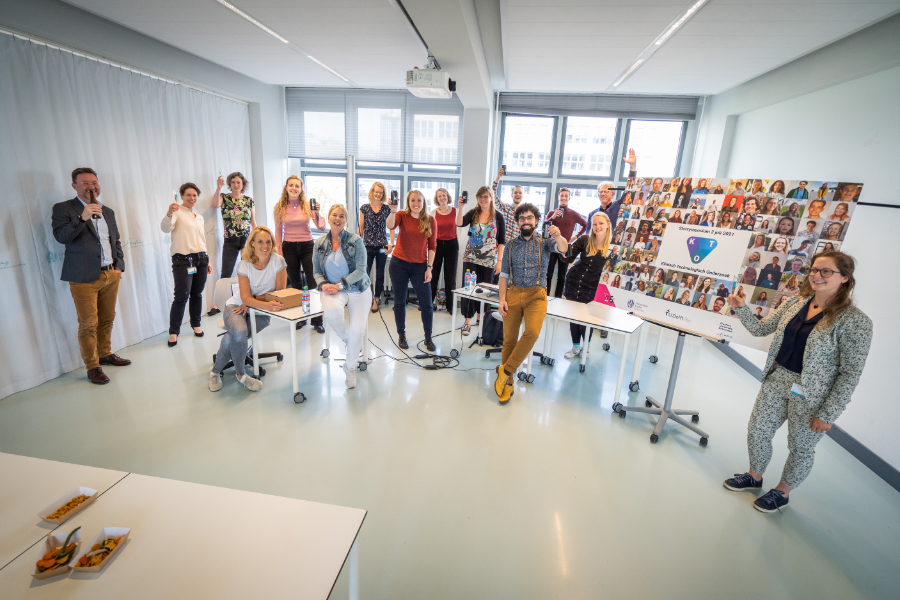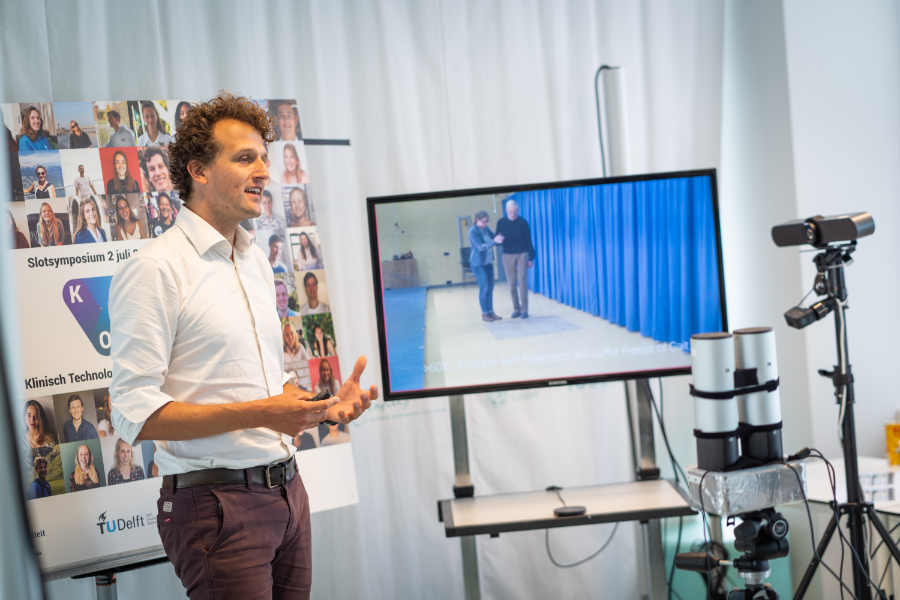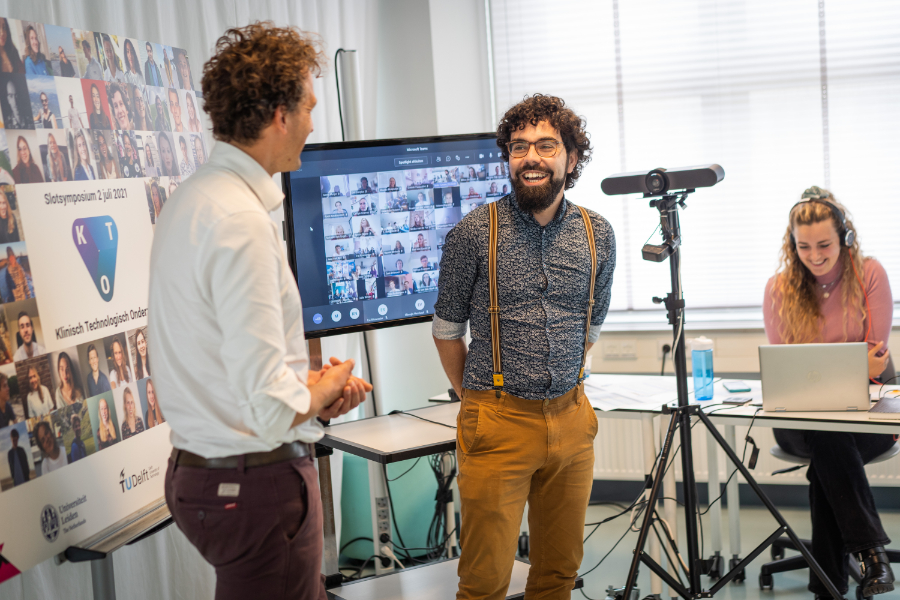Clinical Technology students showcase care innovations and complete bachelor’s degree
A new method to more efficiently measure and store the oxygen level in the blood of newly operated newborns and a completely new prototype that serves as a detection device to show the presence of resistant bacteria. These are two impressive examples from the projects that were shown last week during the online closing symposium for bachelor students in Clinical Technology. These projects won them the Medical Delta KTO-Wow! Award.
During the KTO closing symposium, 109 bachelor students presented impressive examples of technological innovations for healthcare that they developed with medical centres. It was a win-win situation: the students completed their bachelor’s degree and the healthcare institutions can further develop and apply these exciting ideas. Completing their bachelor’s degree gives the students access to the two-year master’s programme in Clinical Technology. After graduation, they may use the protected professional title ‘Clinical Technologist’ and register in the Individual Healthcare Professionals (BIG) register. This makes them an officially registered healthcare provider with independent treatment competences.
The Medical Delta KTO-Wow! Award
An independent jury including members from the medical field presented the Medical Delta KTO-Wow! Award to the two projects: ‘Optimising the reporting of neonatal oxygen saturation in the electronic patient file’ and ‘Inspectro-device: a cheap and accessible method for detecting carbapenem resistance’. Medical Delta, a health & technology partnership of which TU Delft is a member, aims to develop technological solutions for sustainable healthcare. This award has given the student teams additional recognition for the exciting care innovation they presented. They also received a multitool: a pocket-sized toolkit, which is something every clinical technologist will find useful to have at all times.
Optimising the reporting of neonatal oxygen saturation
Although the blood oxygen level of newly operated newborns is measured every second, it is only stored once a minute. Useful data for monitoring fluctuations is therefore lost. A group of graduates from the Clinical Technology programme, in collaboration with Erasmus MC and Sophia Children’s Hospital, devised a new and better method to properly display the multitude of data for clinicians, while data storage is limited.
Global approach to antibiotic resistance
The team of graduates that partnered with Erasmus MC to build a prototype of a meter for bacterial resistance to antibiotics also received this honour. Bacterial antibiotic resistance poses a threat to global healthcare. Carbapenems are antibiotics that are often used as a last resort for bacterial infections, because of their broad spectrum of action, when other antibiotics no longer work. This is something you want to avoid as much as possible, because bacteria are becoming more and more resistant to antibiotics and therefore increasingly difficult to combat. Surveillance – the continuous collection and analysis of data on resistance of bacteria to antibiotics – is important in countering the global spread of antibiotic-resistant bacteria, but developing countries are lagging behind.
The winning graduation project built and validated a prototype of a UV spectrophotometer capable of detecting carbapenem resistant bacteria. A UV spectrophotometer is a device that shines UV light onto a sample and then measures the amount of UV light that is transmitted through it, demonstrating the presence or absence of resistant bacteria. It costs less than €150 to reproduce the prototype and only €0.35 to carry out a measurement with it. All of the prototype’s electronics are available worldwide, and the housing is fully 3D printed. The ultimate goal is to put the device’s blueprints and manuals online for free for anyone to reproduce or use. Many steps still need to be taken for this to happen, but according to the students, it is a step towards global surveillance.

